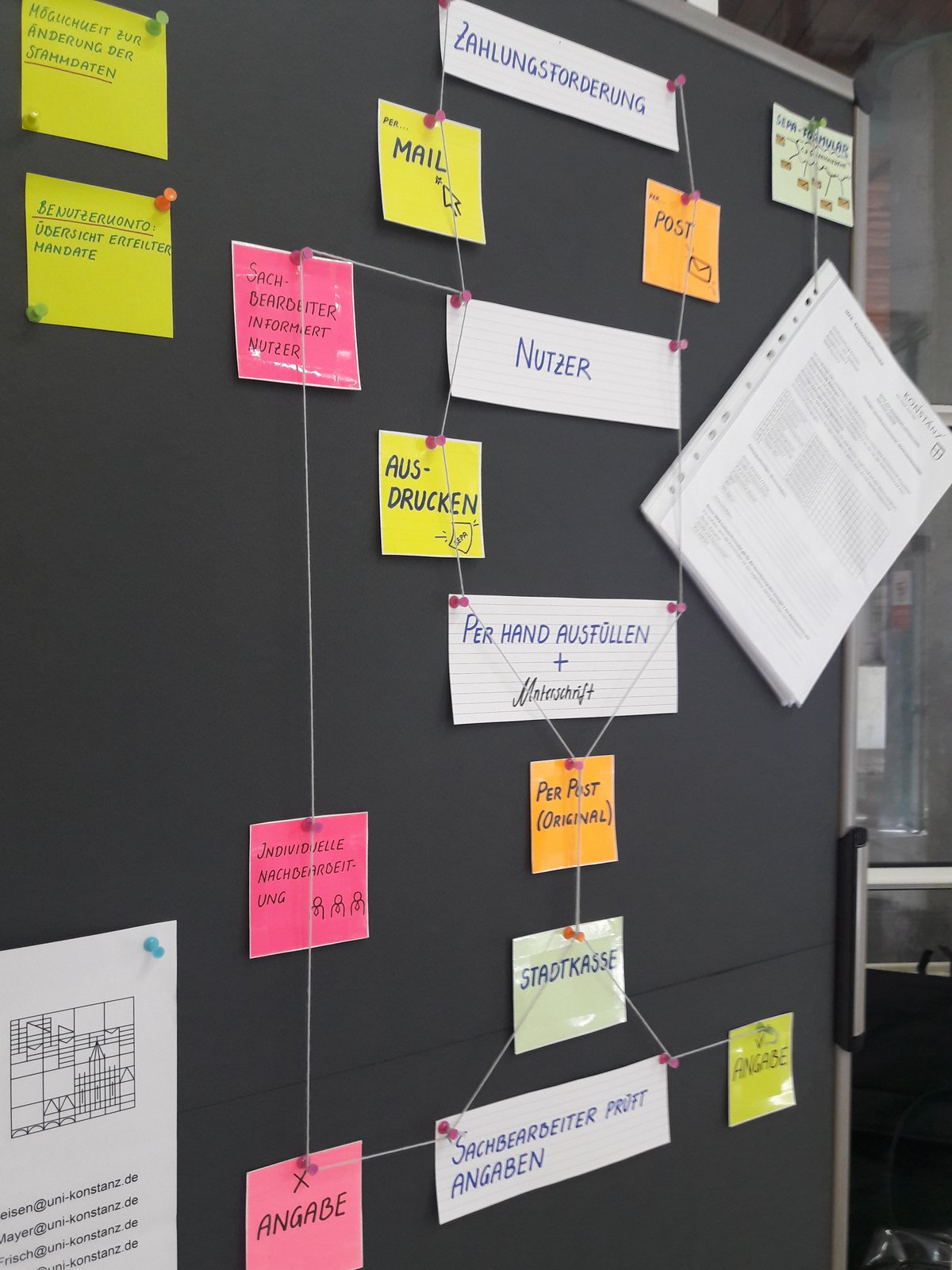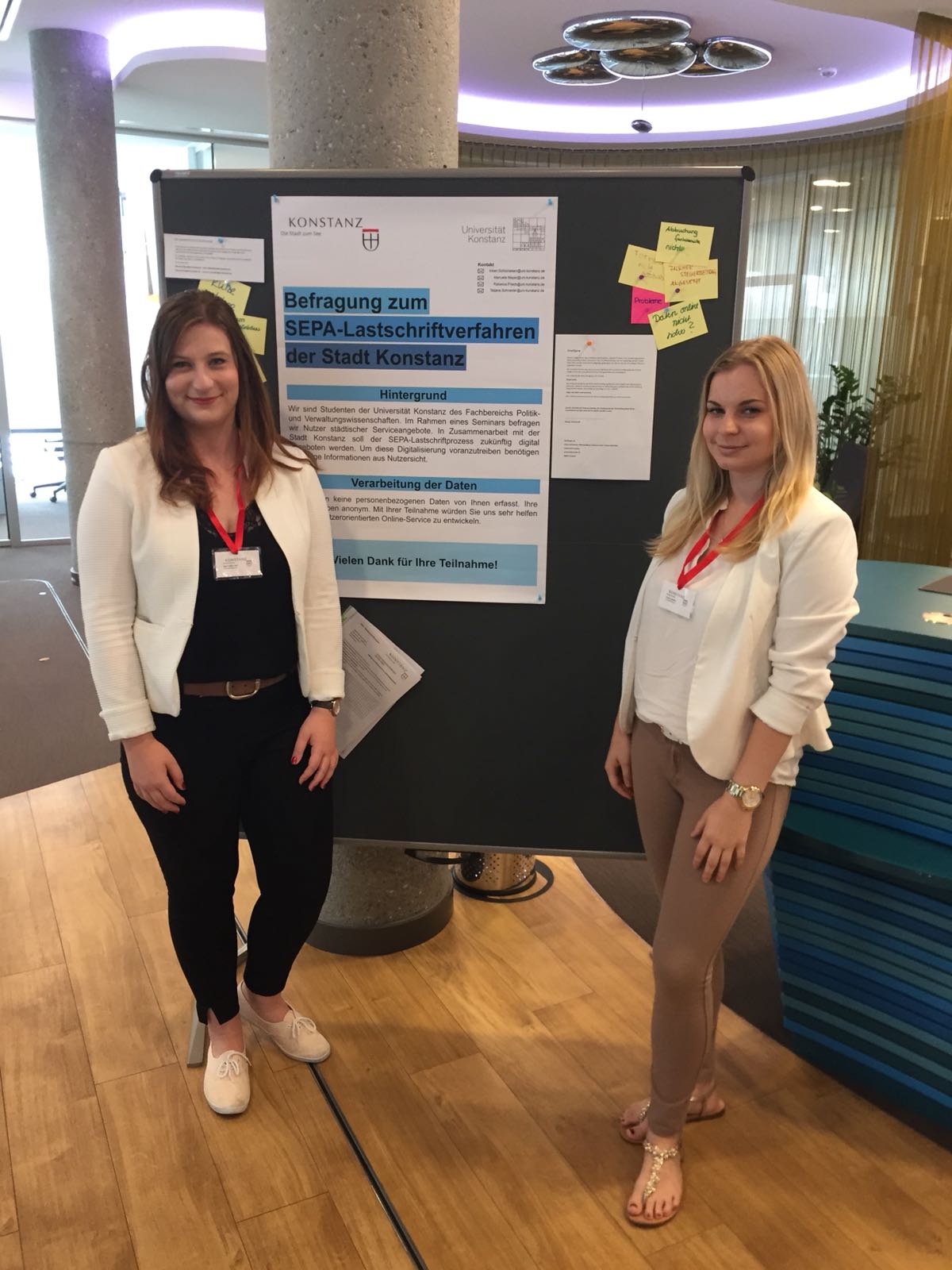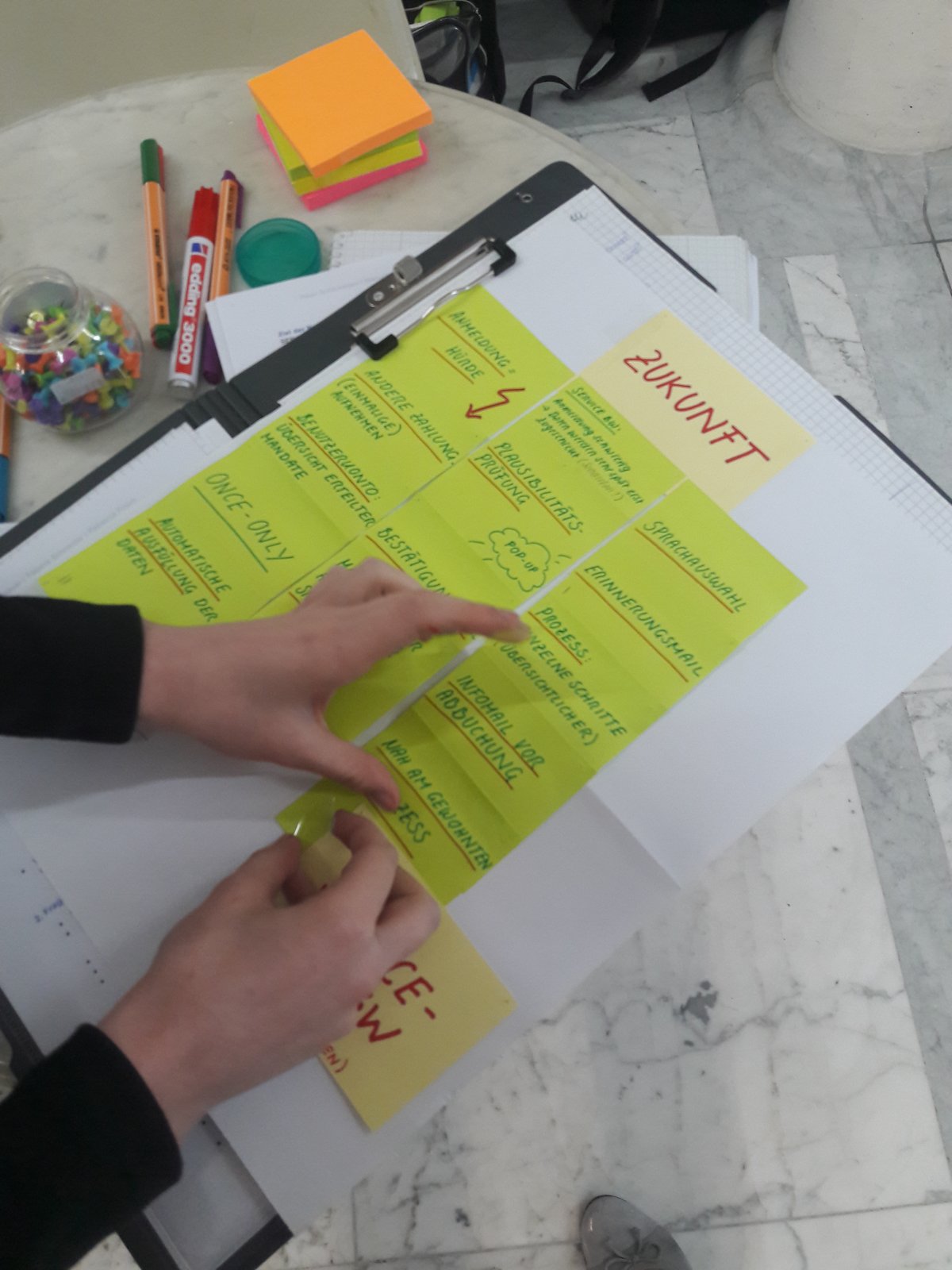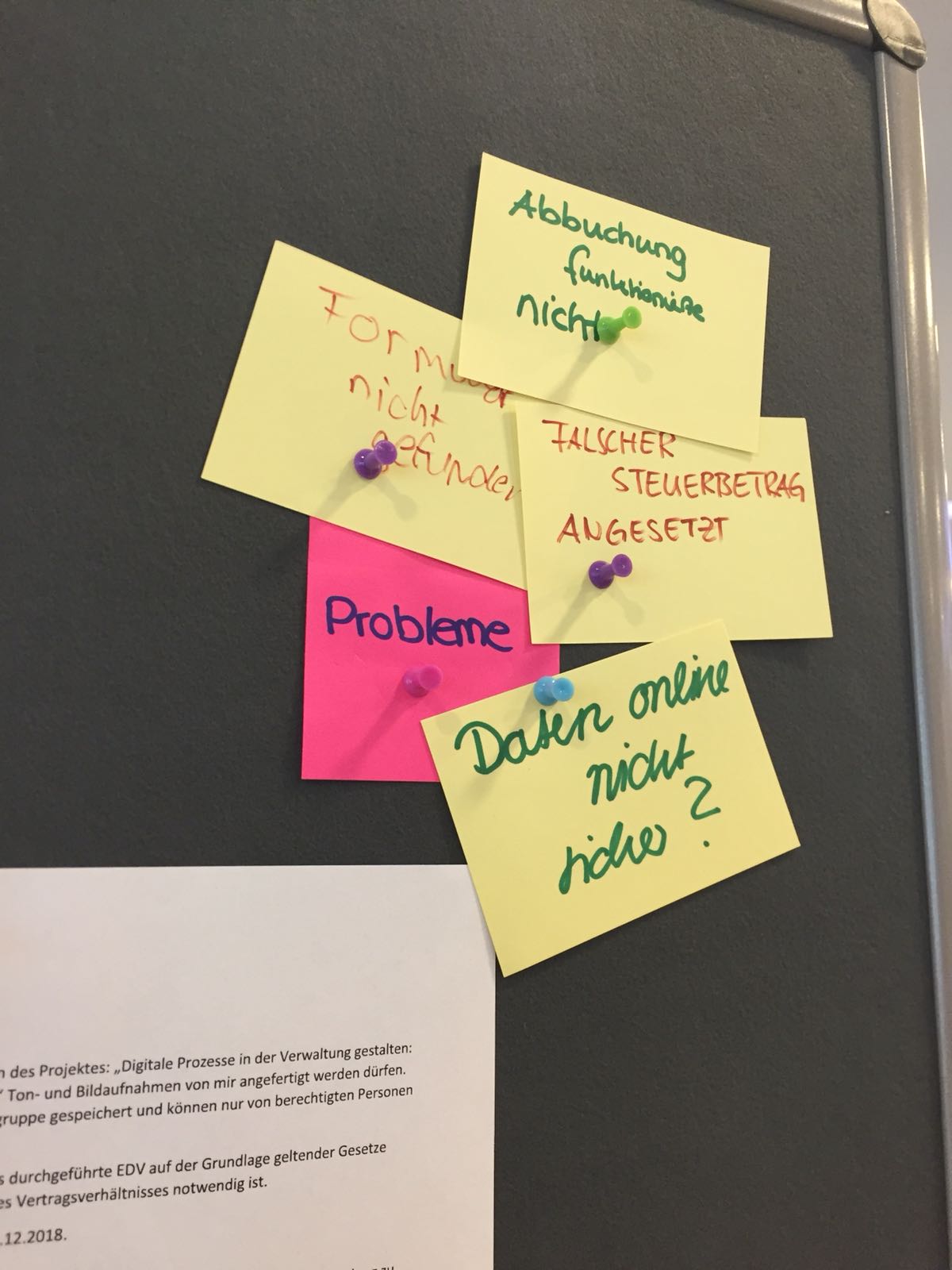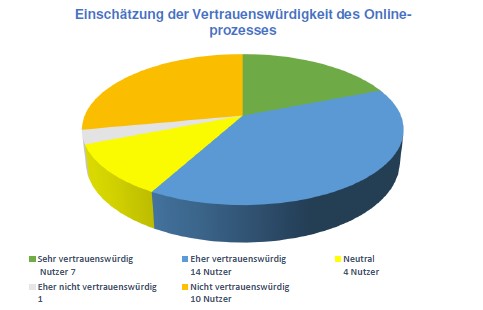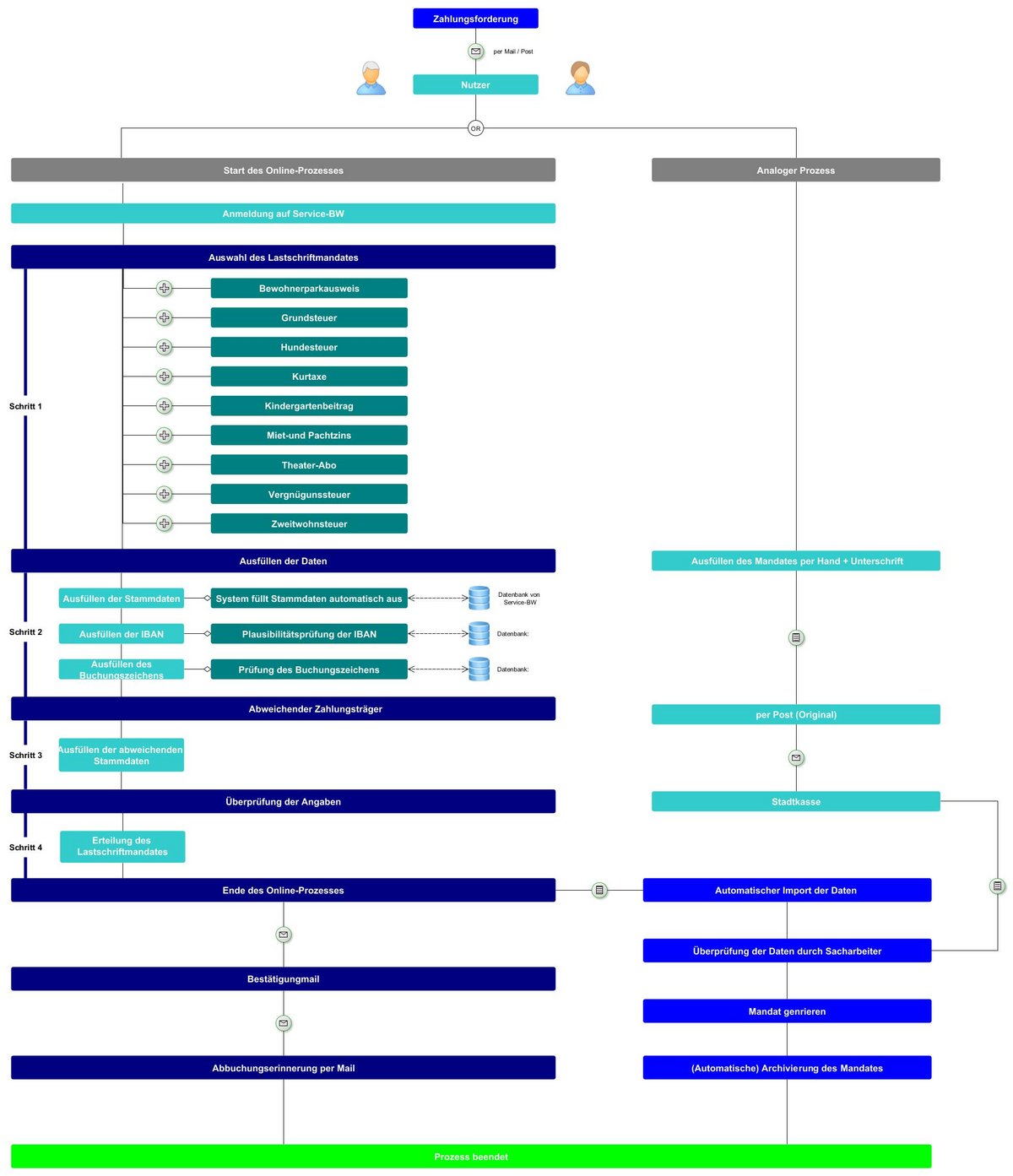
Digitalization of the SEPA Direct Debit Process
Rebecca Frisch, Manuela Mayer, Inken Schlickeisen and Tatjana Schneider
Abstract
The goal of our work was the conception and optimization of the process for issuing a SEPA direct debit mandate in the city of Constance. At the beginning of our project, the existing analogue process presented itself as confusing and user-unfriendly. The process was characterized by a large number of administrative forms as well as a high personal process effort on the part of the users and the administration.
The analysis of the current situation, which had a high priority in our work, was carried out by expert interviews and user surveys. This procedure is essential for an understanding of previous mistakes in order to avoid them in the future and provide better services to citizens. In the following step, a new digital prototype process was developed with the help of the data obtained through a qualitative content analysis. The primary objective here was to generate a uniform application from the previous processes that were all handled individually. A central finding was that the majority of the users interviewed were largely satisfied with the analogue process. Nevertheless, at the same time users welcomed a future digital service process. The digital process must therefore be understood as a supplement that cannot completely replace the analog process in the short term.
Methodology
In order to understand which specific guidelines and wishes existed, we started researching directly on site. We were able to first record the essential conditions and requirements, which were placed on our work through interviews with experts from the city of Constance, as well as with the support of the company Seitenbau, which was decisively involved in the development of the service portal "service-bw.de". In addition to this on-site research, the focus was also on the implementation of user-centered applications and instructions. The seminar had additionally trained us in agile working methods. In particular, the creation of a "User Journey", through which it was possible to point out the situations experienced by the users during the administrative process, further sharpened the understanding of potential problems and improvements. We found that the user-friendliness of the IST process is significantly limited by the high amount of time that users have to give up. (Figure 1)

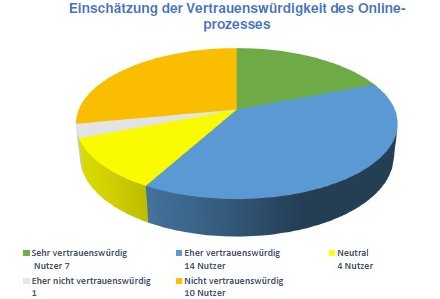
In order to be able to adapt the new process to the guidelines of the city, as well as to the needs of the users, we developed a questionnaire for users. The questionnaire covered the district from which the citizens came, for which payments a SEPA mandate had currently been issued, which problems existed with the previous granting procedure and how trustworthy the granting of a SEPA mandate via the Internet was assessed. In addition, it was asked whether an online process would be preferred to the existing process.
The survey data was collected on three dates at three locations within the city. A total of 36 citizens of the city of Constance took part in the survey. The results made it clear that 58% of the participants clearly preferred an online-based process and considered the use of the process to be trustworthy. The survey revealed the following targeted wishes from users: a uniform process and the avoidance of long distances. In case of queries, a personal contact person was also considered desirable. A confirmation and reminder e-mail regarding the payment requests was also clearly required. What was particularly important here was the realization that the existing process was desired by some and should therefore remain in place. On the basis of these clear findings, we were able to construct the new process prototype.
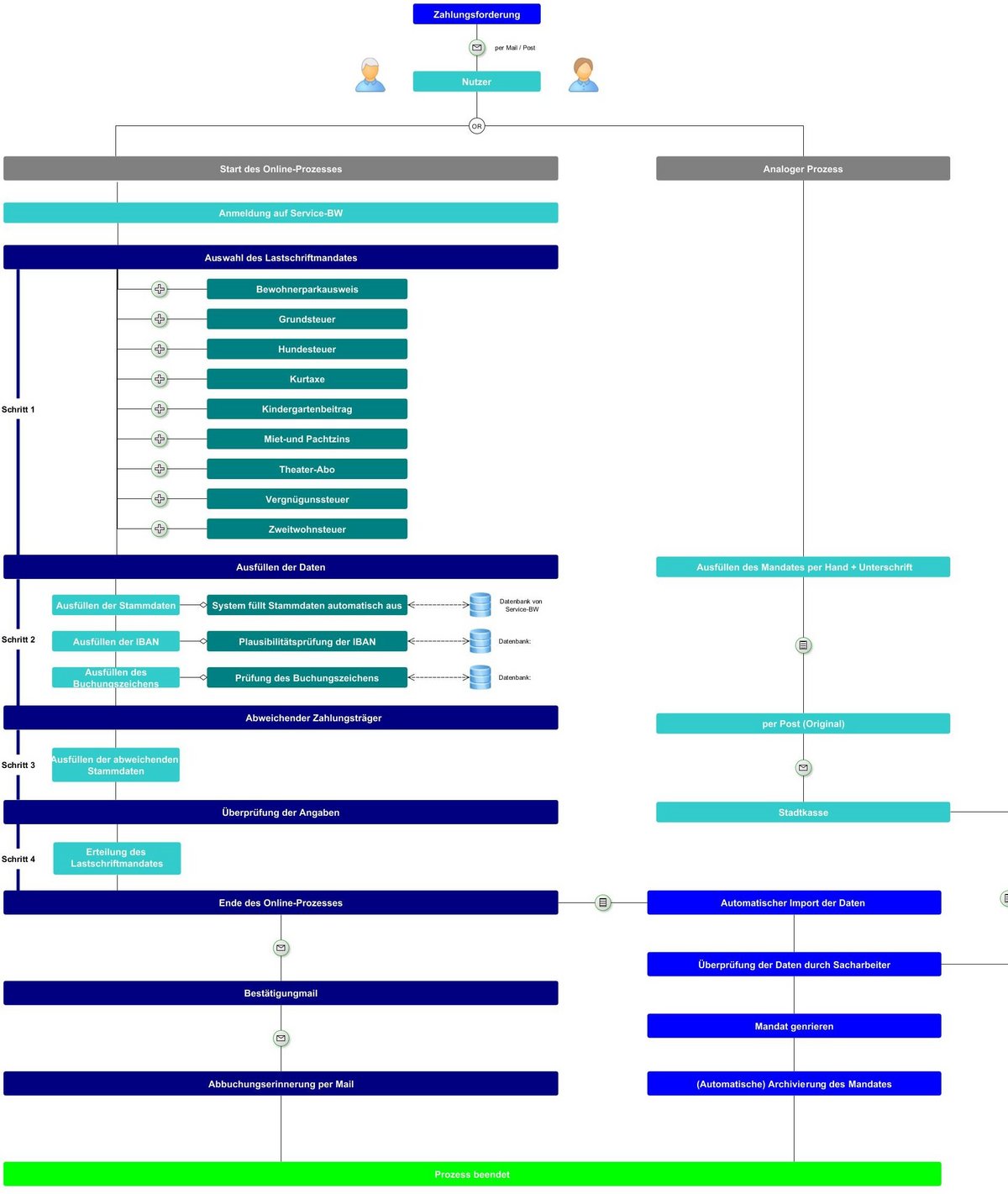
Outcome
In the newly developed uniform process, users inside the service portal of the state of Baden-Württemberg (service-bw.de) can select the granting of a SEPA direct debit mandate as an option. In the following steps, it is possible to select the payment request for which the mandate is to be issued. At that, the master data of the user (which is stored in the portal) is supplemented, the stored IBAN is checked for its plausibility and the payment-specific booking code is added. At the end, the users are given the opportunity to deposit an alternative payment medium and are asked to confirm the granting of the mandate. At the same time, the users receive a confirmation e-mail with all important information and are informed again before the amount is debited. Equivalent to the online process described above, users can also request the documents from the city, fill them in manually and return them by post. In this case, it is the responsibility of the administrative clerk to check the correctness and completeness of the information.
An important finding in the course of the survey was that almost every second respondent is now open to payment processing via the Internet.
Despite positive feedback, it must be borne in mind that our project is subject to limitations. As part of our project, only 0.05 percent of the registered residents of the city of Constance were surveyed. However, the importance of continuously questioning and improving existing processes in order to create measurable added value for users through the implementation of the Online Access Act was already made clear.
Theoretical & practical implications
This work has relevant practical implications that can be transferred to other processes and cities. The method of user-centered design is particularly suitable for modelling a process change according to the wishes of citizens. Tools such as a user journey or a flow diagram help to analyze the process from the point of view of the administration and the citizens. This allows to present the actual state in a concise and to identify any problems on both sides early one. The active discussion with citizens enables an insight into their living environments and wishes and thus represents the main benefit of a user-centered design. The practical implementation is initially associated with a high use of resources, both in terms of time, money and staff training. In the long run, however, the public administration will profit, as a user orientation in the design of the process will lead to higher acceptance of the finished process. It is important for citizens to actively manage their expectations with regard to the feasibility of their wishes in order to create a balance between expectations and actual feasibility. It is also important to include all branches of the public administration involved during the project, in order to ensure feasibility and the acceptance of the result by the executing employees. Even after the implementation of the prototype, continuous evaluation and iterative feedback from citizens is important to ensure good citizen services on an ongoing basis.
The finished prototype met with a positive response and was very well received by the city of Constance. It is to be integrated into the "servive-bw.de" portal and into the everyday system life of the city of Constance.
Figures
Files

Rebecca Frisch:
Rebecca Frisch is currently studying Political and Public Administration at the University of Konstanz, specializing in public administration. She is expected to complete her Bachelor of Arts degree in 2020. Her research interests lie in the areas of digitization within public administration, service design and agile project management.

Manuela Mayer:
From 01.04.2019 Manuela Mayer will take up a trainee position at the city of Konstanz. She graduated (Politics and Public Administration) at the University of Konstanz in the winter semester 2018/2019. In her bachelor thesis she discusses the topic 'Collaborative cooperation in the context of implementing the Online Access Law'. Her research interests lie primarily in the areas of digital transformation of public administration and public service design.

Inken Schlickeisen:
Inken Schlickeisen is currently studying Politics and Public Administration at the University of Konstanz. She will obtain her Bachelor of Arts at the end of 2019. After six months of project work on the topic 'Digitalization in business management', she will also deal with various aspects of digitization in the context of her bachelor thesis. Further research interests lie in the areas of network analysis and agile project structure.

Tatjana Schneider:
Tatjana Schneider is currently studying Politics and Public Administration at the University of Konstanz. She is expected to complete her Bachelor of Arts in summer 2019. She will write her bachelor thesis on the topic 'Coproduction in public administration'. Her further research interests lie in the areas of digitization of public administration and organizational research.


